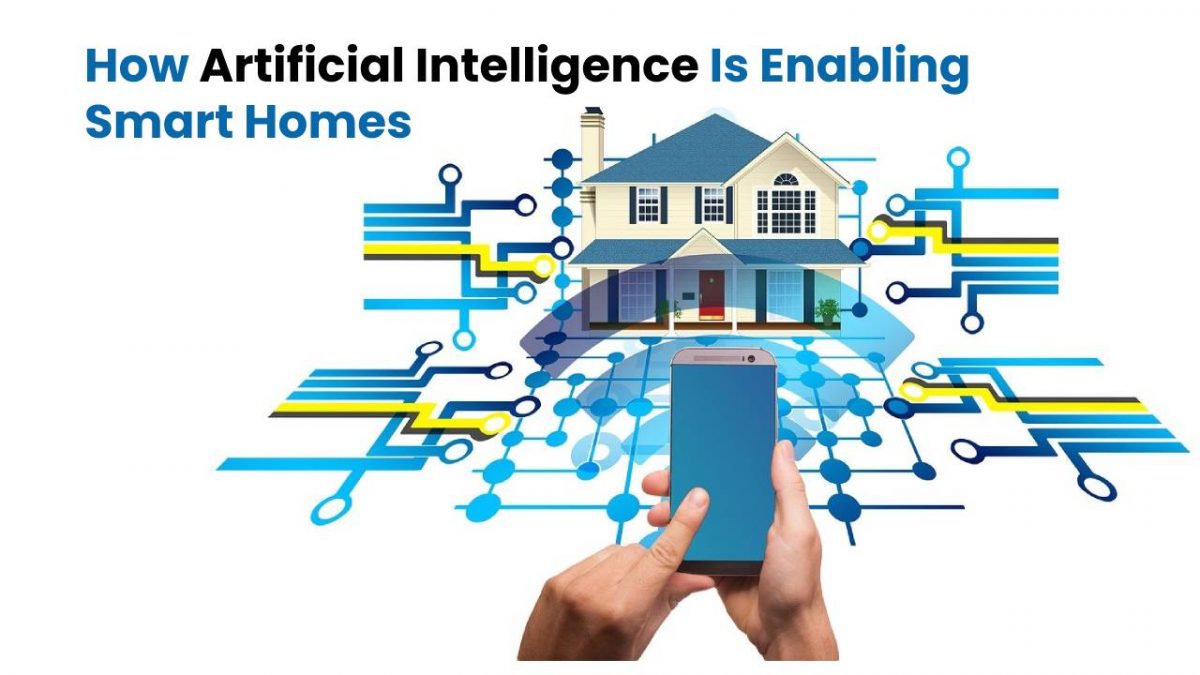Artificial intelligence and smart homes aren’t recent AI technology developments. The concept has been around for decades. In the mid-twentieth century, comics and cartoons such as Richie Rich and The Jetsons featured things like robot butlers, maids, and automation. Of course, most of this was dramatized and exaggerated for the benefit of entertaining young audiences. But in the modern-day world, an automated, intelligent, or otherwise “smart” home, is not just on the drawing board any more. They have become a reality, even if you aren’t aware of it.
Table of Contents
How Artificial Intelligence has Jumpstarted Smart Homes
The fact that we are seeing smarter tech in our time isn’t a random event. Decades of incremental developments have gone into where we stand today. From the earliest computers to modern smartphones, from primitive dial-up connections to present-day Spectrum internet and other Spectrum offers, many of our largest technological achievements have played their part. Notwithstanding, smart homes are not just the realm of science fiction or cartoons anymore. They are a reality that is already beginning to take shape.
However, since the technologies that drive smart homes, such as AI, IoT, and wireless network are still in their relative infancy, smart homes still have a long way to go. But AI has acted as a huge catalyst nonetheless, particularly in the following ways:
Better Kitchens
The kitchen is often the most important part of the house. Food and ingredients will make up a significant part of any household budget. That’s not to mention the time you need to fit into your busy schedule to prepare ingredients and cook meals. If something goes wrong, like leaving the stove on for too long, or running out of a key ingredient, it can be all the more frustrating.
AI technology offers a better and more efficient alternative in the form of a smart kitchen. Imagine everything, from the refrigerator to the oven to the dicer communicating with each other.
Better yet, imagine them integrated into one piece of hardware. Thanks to image recognition and machine learning, a smart kitchen can scan the ingredients on hand and offer a list of possible meals that you can make from them. Advanced versions may even be able to cook the food for you to your specifications. No more stressing over exact portions or calorie counts!
Automated Cleaning
The thrill of having your own space is constantly at odds with keeping it clean. If you have a demanding job, cleaning your home can often be relegated to the weekends. In some cases, it is even more infrequent. Sure, work comes first, since that’s what pays the bills. But is a dirty apartment or an untidy home worth all the hard work you put in?
AI-powered technology can help take away some of the burdens for you. Robo-cleaners such as the Roomba have been around for some time now. The only difference is that they are far smarter now, thanks to modern AI and ML. Modern robot cleaners can map the layout of your home. This allows them to systematically clean up any space that they can reach, saving you the trouble of vacuuming your living space every few days.
Better Heat and Light Management
Of course, unless you’re renting, heat and light expenses are going to be one of the biggest drains on a homeowner’s budget. These are utilities, meaning they are the basic facilities that should be made available to every home. But managing them more efficiently has plagued people for a long time, especially those with stretched budgets.
One of the biggest benefits of smart home technology is that you can manage more efficient use of heat and light for your home. Modern home assistants and smart speakers can also offer customized greetings, play your favorite song, and operate integrated devices like lights at a simple voice command. AI tech can learn when you’re at work, for instance, and turn down the thermostat, switch off lights, etc. It can then switch everything back the way you like when you’re back home.
Improved Security and Safety
Artificial Intelligence – Finally, a huge advantage of using smart home technology is the added security and safety value. AI and facial recognition technology offer smarter and more secure door locks that can be very hard to get past. AI can also passively monitor movement around your home, alerting you to any suspicious or unusual activity. Motion-activated cameras, as well as doorbells that snap a picture of an intruder, all of these are possible thanks to smarter AI technology.

